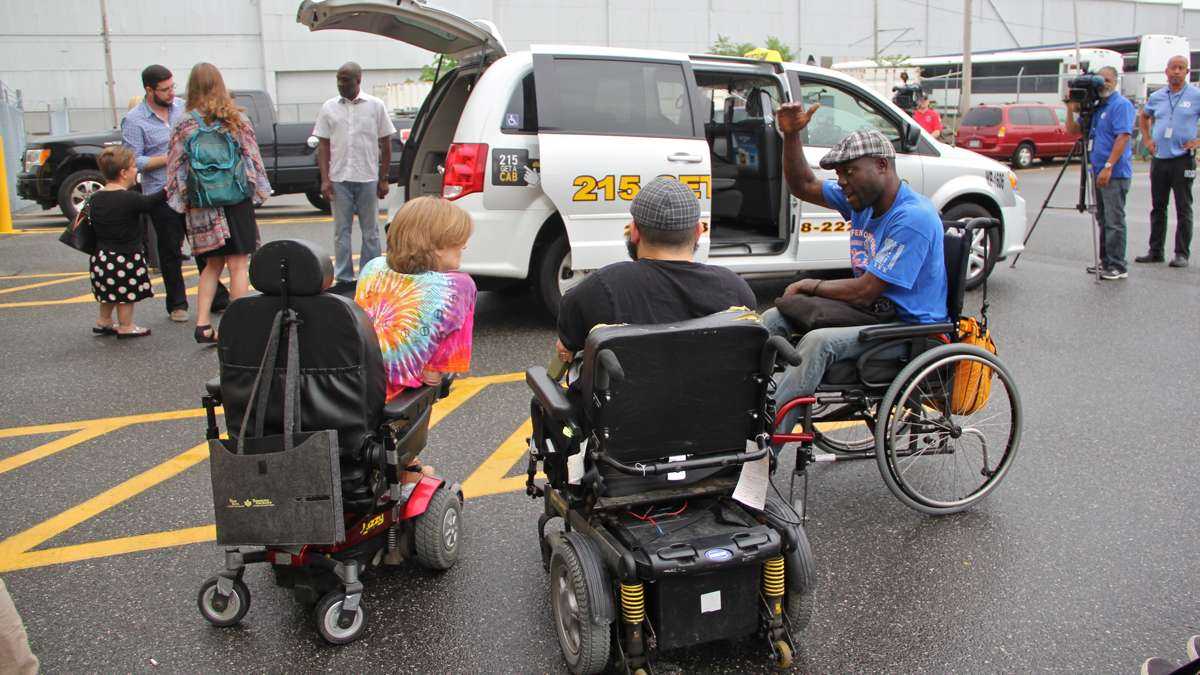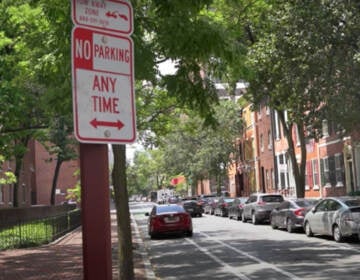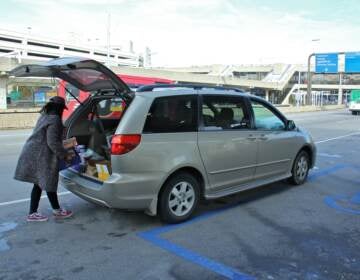Taxi medallion values hit new low as PPA sets minimum bid for upcoming auction

The Philadelphia Parking Authority (PPA) set the minimum bid for the sale of 41 new taxi medallions for wheelchair accessible vehicles (WAVs) at $10,000 at its monthly board meeting Tuesday morning. The $10,000 minimum bid is the latest low for taxi medallion prices, which have fallen precipitously over the last few years after conspicuous increases in the years prior.
Last year, the PPA set the minimum for 50 “Wheelchair Philadelphia”-designated medallions at $50,000. They all sold for between $80,000 and $110,000, said PPA General Counsel Dennis Weldon. But of those 50 sold medallions, 20 failed to close because the winning bidders were unable—or, perhaps hit by buyer’s remorse, unwilling—to obtain financing to cover the sale prices and pay the PPA. Those 20 medallions reverted back to the PPA, which is statutorily authorized to auction offer an additional 21 medallions this year.
The $10,000 minimum is a new low for medallion prices that, as recently as 2014, sold for as much as $545,000. The staggering drop only slightly exceeds the dramatic rise in medallion prices: In 2006, medallions sold for just $60,000. While Uber and Lyft get the lion’s share of the blame for dragging the prices back to earth, hindsight suggests that the ride-hailing companies merely popped an unsustainable bubble.
Any taxi medallion can be used for WAVs, but these will all be “Wheelchair Philadelphia” or “WP” designated medallions, meaning they can only be used for WAVs. WAVs are relatively expensive, with a basic, no-frills vehicle going for $40,000. Today, there are 32 WAV taxis licensed and inspected in Philadelphia, said Weldon. Philadelphia has around 1,600 taxis total, and an estimated 128,000 residents with ambulatory disabilities. Uber offers a wheelchair accessible service, UberWAV, but only has a handful of vehicles operating at this time.
The 41 medallions will be sold via a series of sealed bids, four to seven medallions at a time, which will be opened every Wednesday between October 5th and November 16th. In each round, the bidder who offers the pay the most gets the right to buy. Bidders will have 100 days to come up with the bid price and close.
The PPA only sets the minimum price for the medallions: Bidders can and do offer more, generating more income for the authority. The PPA uses the medallion sales revenues to fund regulatory operations of its taxi and limousine division.
The PPA proposed new regulations last May that would eventually require all taxis in Philadelphia to be wheelchair accessible, something no other U.S. city has done. That proposal has faced opposition from the cab industry, which has been left reeling from competition from Uber and Lyft, and remains stuck in regulatory purgatory for now.
WHYY is your source for fact-based, in-depth journalism and information. As a nonprofit organization, we rely on financial support from readers like you. Please give today.





